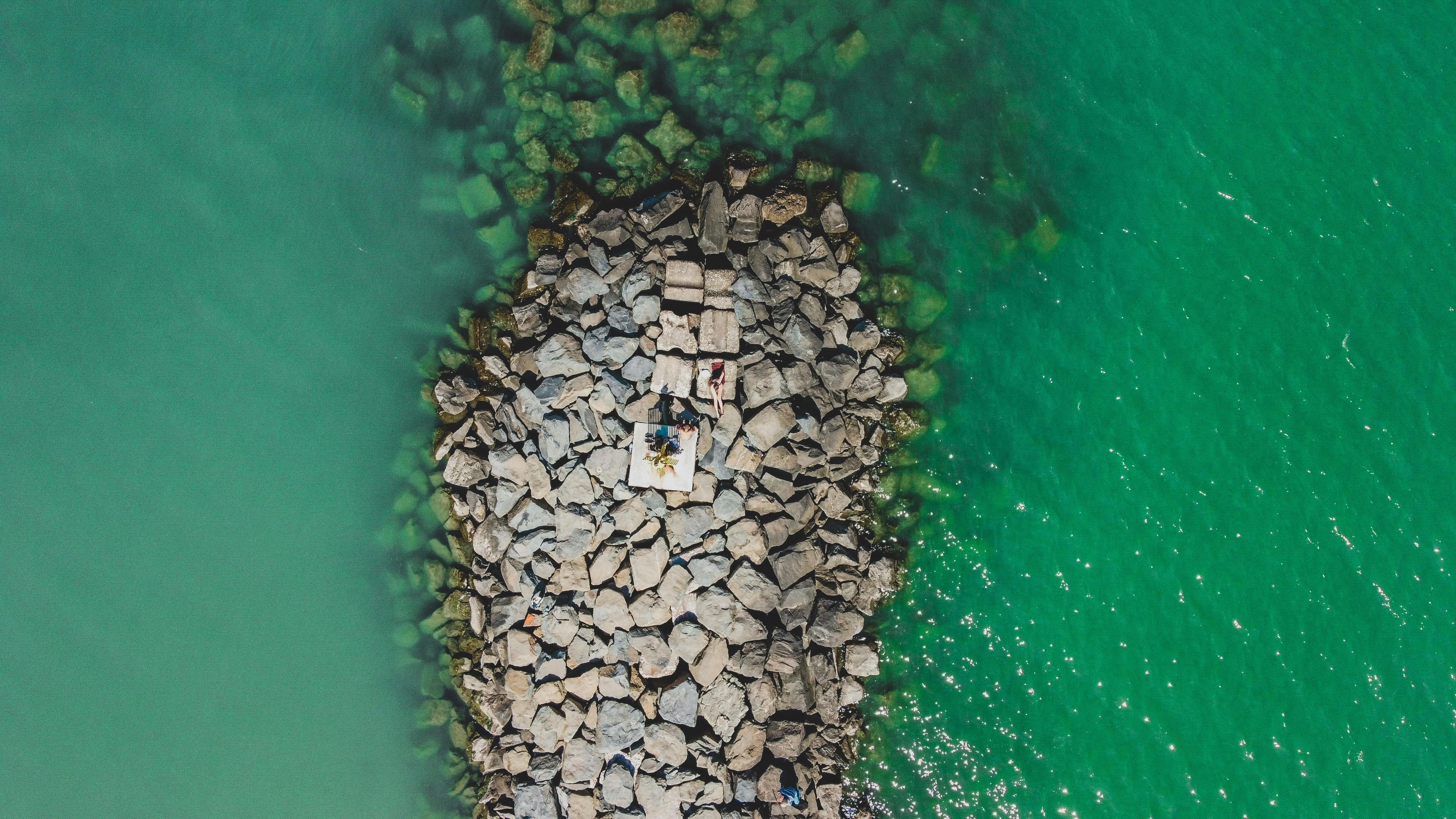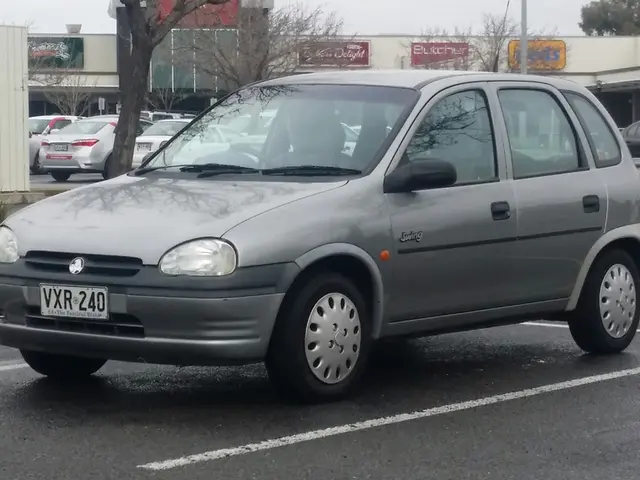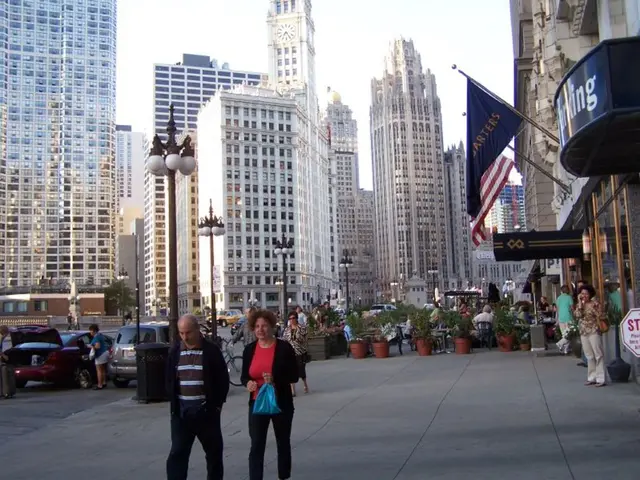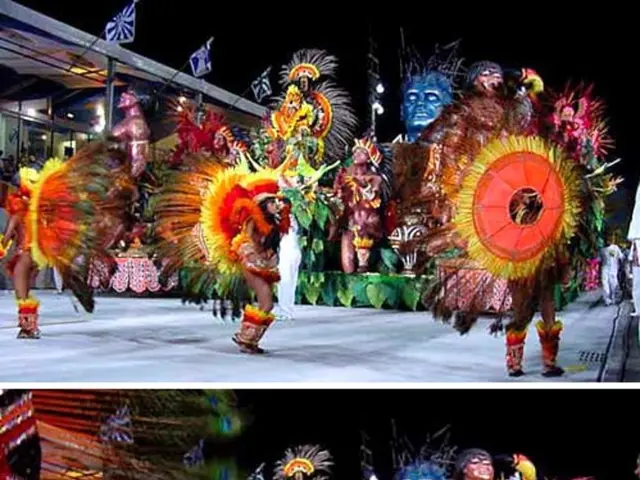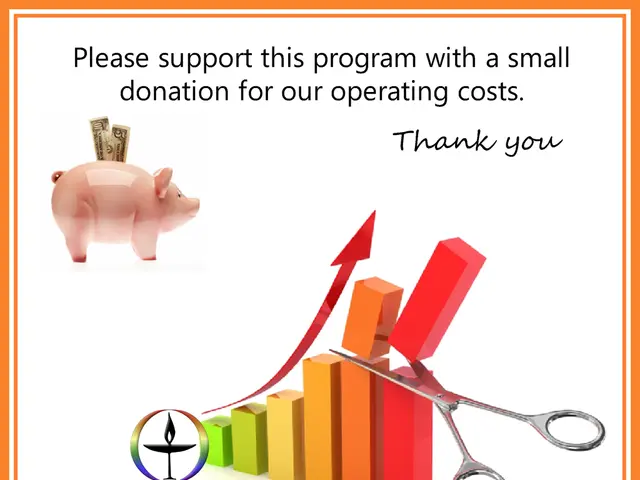Europe's Show of Solidarity: German, French, British, Polish, and EU Leaders to Meet with Ukrainian President in Kyiv
Political Leaders: Merz, Macron, Starmer, and Tusk Heading to Kiev
Facebook Twitter Whatsapp E-Mail Print Copy Link
Several major European nations, including Germany, France, the United Kingdom, and Poland, are set to demonstrate their solidarity with Ukraine by jointly visiting its capital, Kyiv. Situated at the heart of the European Union (EU) politics, Chancellor Friedrich Merz, President Emmanuel Macron, Prime Minister Keir Starmer, and Prime Minister Mateusz Morawiecki are all scheduled to meet with Ukrainian President Volodymyr Zelenskyy. Their visit follows a significant proposal of a 30-day unconditional ceasefire from US President Donald Trump, which has yet to be agreed upon by both warring parties. The unprecedented show of unity from European figures underscores the continent's commitment to supporting Ukraine in its struggle against Russian aggression.
In a joint statement, the European leaders expressed their readiness to support peace talks if Russia is willing to engage genuinely. They reiterated the importance of reinforcing pressure on Russia's war machine until they agree to a lasting ceasefire, as well as their intention to assist in the technical implementation of ceasefires and the preparation of a comprehensive peace agreement.
The EU has been a vocal advocate for Ukraine in the international community, directing significant funds towards Ukrainian defense efforts and diplomatic initiatives. A recent example involves the approval of a billion-euro loan to Ukraine, demonstrating the EU's ongoing financial support for the nation.
Politics and International Relations
EU Leaders Unite behind Ukraine amid Persistent Conflict with Russia
- Deepening Diplomatic Relations: The visit by four major European leaders to Ukraine's capital signifies a reinforcement of diplomatic ties between Ukraine and the European Union.
- Promoting Peace: By meeting with President Zelenskyy, the European delegation hopes to contribute to a potential resolution of the ongoing conflict between Ukraine and Russia.
- Continuing Financial Aid: The European Union's provided substantial financial aid to Ukraine to support its defense efforts and economy in the face of the Russian invasion.
- Joining the US-led Mediation Efforts: The leaders are expected to support ongoing efforts to establish a 30-day ceasefire proposed by US President Trump.The recently planned visit by German, French, British, and Polish leaders to Ukraine reflects the strong commitment of major European nations to support Ukraine during its ongoing conflict with Russia. While the proposed ceasefire put forth by US President Trump has received a mixed response, European leaders are expected to lend their voices to the mediation efforts. The European Union has consistently provided financial aid and diplomatic assistance to Ukraine in an attempt to strengthen its defense capabilities and economy. In this way, the visit by these leaders underlines the important alliance between the EU and Ukraine in the face of Russian aggression.Poland's recent political stances and actions demonstrate a strong support for Ukraine, aiming to bolster the Ukrainian defense sector and contribute to the maintenance of security in Eastern Europe. Mateusz Morawiecki, Poland's Prime Minister, has expressed continued interest in serving as a crucial figure in diplomatic efforts to secure peace for Ukraine and thwart Russian ambitions in the region. The country has already taken practical steps to support Ukraine, including the provision of weapons and loans.The United Kingdom has traditionally played a significant role in European politics, providing both military and financial assistance to its European allies. In the context of the Ukraine conflict, the UK has been one of the key supporters of Ukraine, as demonstrated by Prime Minister Keir Starmer's announcement of intent to provide additional weapons and financial aid to Ukraine. In addition, the UK serves as an essential partner of the United States in diplomatic endeavors aimed at stabilizing the region and promoting peace talks between Ukraine and Russia.As a leading European nation, France has been actively involved in various diplomatic efforts to address the ongoing conflict between Ukraine and Russia. When evaluating the role of France in the context of the Ukraine war, it is essential to recognize its commitment to working alongside other key European players like Germany and the United Kingdom to forge lasting peace. French President Emmanuel Macron, recognizing the gravity of the situation, has engaged in various diplomatic initiatives aimed at achieving a peaceful settlement between Ukraine and Russia while also working to enhance the security dynamics in Eastern Europe.Playing a crucial role within the European Union, Germany possesses considerable influence over the diplomatic landscape. Chancellor Friedrich Merz, Germany's most recent leader, has acknowledged the importance of standing with Ukraine against Russian aggression. In alignment with France, the United Kingdom, and Poland, the German government has demonstrated support for Ukraine through financial aid—such as the recently approved billion-euro loan—and diplomatic efforts aimed at achieving a lasting peace. Germany's strategic position within the EU and its commitment to supporting Ukraine indicate the need for ongoing dialogue and collaboration among European nations in their joint efforts to bolster the security of Eastern Europe.The European Union (EU) serves as a significant economic and political entity, playing a decisive role in global politics and diplomacy. In the context of the Ukraine conflict, the EU has proactively provided financial assistance to Ukraine, supporting its defense sector and economy while advocating for the protection of Ukrainian sovereignty. The EU, however, is facing challenges in maintaining its influence over the global security landscape, as demonstrated by its limited ability to directly intervene in conflicts like the one in Ukraine. The recent visit of four major European leaders to Ukraine suggests that the EU is united in its commitment to supporting Ukraine and upholding the principles of self-determination, democracy, and the rule of law in the region.
- The commitment of major European nations, including Germany, France, the United Kingdom, and Poland, is evident as they embark on a joint visit to Ukraine's capital, Kyiv, indicating a reinforcement of diplomatic ties with Ukraine and the European Union.
- The European leaders meeting with President Zelenskyy aim to contribute to the potential resolution of the ongoing conflict between Ukraine and Russia, underscoring the continent's determination to promote peace in the region.
- The EU has been a steadfast supporter of Ukraine, providing substantial financial aid to bolster its defense capabilities and economy, and consistently advocating for its sovereignty in the international community.
- The leaders visiting Ukraine are expected to lend their support to mediation efforts led by US President Trump regarding the proposed 30-day ceasefire, which could potentially mark a significant step towards settling the ongoing conflict.
